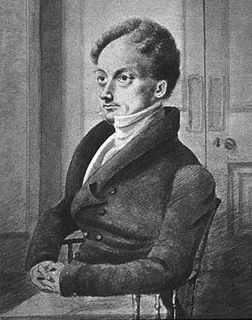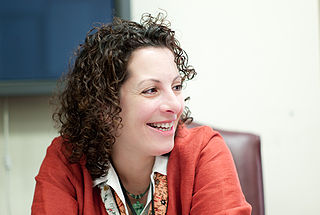A Quote by James Mill
Whenever the powers of government are placed in any hands other than those of the community, whether those of one man, of a few, or of several, those principles of human nature which imply that government is at all necessary, imply that those persons will make use of them to defeat the very end for which government exists.
Related Quotes
Tis a Mistake to think this Fault [tyranny] is proper only to Monarchies; other Forms of Government are liable to it, as well as that. For where-ever the Power that is put in any hands for the Government of the People, and the Preservation of their Properties, is applied to other ends, and made use of to impoverish, harass, or subdue them to the Arbitrary and Irregular Commands of those that have it: There it presently becomes Tyranny, whether those that thus use it are one or many.
There is one view of the subject which ought to have its influence on those who espouse doctrines which strike at the authoritative origin and efficacious operation of the Government of the United States. The Government of the U.S. like all Governments free in their principles, rests on compact; a compact, not between the Government & the parties who formed & live under it; but among the parties themselves, and the strongest of Governments are those in which the compacts were most fairly formed and most faithfully executed.
If we have system in which government is in a position to give large favor - it's human nature to try to get this favor - whether those people are large enterprises, or whether they're small businesses like farmers, or whether they're representatives of any other special group. The only way to prevent that is to force them to engage in competition one with the other.
The Constitution contains no 'dignity' Clause, and even if it did, the government would be incapable of bestowing dignity. ... Slaves did not lose their dignity (any more than they lost their humanity) because the government allowed them to be enslaved. Those held in internment camps did not lose their dignity because the government confined them. And those denied governmental benefits certainly do not lose their dignity because the government denies them those benefits.
Fruits are always of the same nature with the seeds and roots from which they come, and trees are known by the fruits they bear: as a man begets a man, and a beast a beast, that society of men which constitutes a government upon the foundation of justice, virtue, and the common good, will always have men to promote those ends; and that which intends the advancement of one man's desire and vanity, will abound in those that will foment them.
I, sir, have always conceived - I believe those who proposed the constitution conceived,and it is still more fully known, and more material to observe, those who ratified the constitution conceived, that this is not an indefinite government deriving its powers from the general terms prefixed to the specified powers - but, a limited government tied down to the specified powers, which explain and define the general terms.
Great part of that order which reigns among mankind is not the effect of government. It has its origin in the principles of society and the natural constitution of man. It existed prior to government, and would exist if the formality of government was abolished. The mutual dependence and reciprocal interest which man has upon man, and all the parts of civilised community upon each other, create that great chain of connection which holds it together.
As the people are the only legitimate fountain of power, and it is from them that the constitutional charter, under which the several branches of government hold their power, is derived, it seems strictly consonant to the republican theory, to recur to the same original authority, not only whenever it may be necessary to enlarge, diminish, or new-model the powers of the government, but also whenever any one of the departments may commit encroachments on the chartered authorities of the others.
In short, it is the greatest absurdity to suppose it in the power of one, or any number of men, at the entering into society, to renounce their essential natural rights, or the means of preserving those rights; when the grand end of civil government, from the very nature of its institution, is for the support, protection, and defence of those very rights; the principal of which, as is before observed, are Life, Liberty, and Property.
The powers delegated by the proposed Constitution to the federal government are few and defined. Those which are to remain in the State governments are numerous and indefinite. The former will be exercised principally on external objects, as war, peace, negotiation and foreign commerce. ... The powers reserved to the several States will extend to all the objects which in the ordinary course of affairs, concern the lives and liberties, and properties of the people, and the internal order, improvement and prosperity of the State.



































